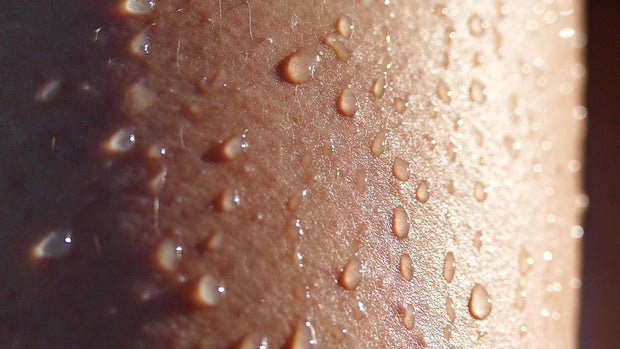Sweating is a normal and necessary biological process that keeps us cool and helps to control our body temperature. Although sweating is common, some people experience excessive sweating, which can be awkward and even embarrassing. This article explores the causes of excessive perspiration and provides doable remedies for good management.
Basics of Sweating Understanding
Sweating, commonly referred to as perspiration, is the process through which our body expels liquids through its sweat glands, primarily salt and water. The body cools as a result of the evaporation of the moisture on our skin. The brain's reaction to many internal and environmental variables causes sweating.
Factors Affecting Sweating
Physical exercise
Sweating can be induced by physical activity, whether it be a hard workout or a quick walk. This is due to the fact that sweating aids in the removal of heat from your body. Regular physical activity also trains your body to cool itself more effectively.
Thermodynamics and Humidity
Your body produces more sweat when it is hot and humid outside because it is trying to stay at its ideal temperature. High humidity slows down evaporation, increasing your amount of perspiration.
Anxiety and stress
Your sweat glands may become activated as a result of emotional reactions like stress and worry, which can cause unexpected and excessive sweating. The relationship between your brain and sweat glands is to blame for this.
Health Conditions
Excessive sweating can be caused by a number of medical diseases, including hyperhidrosis, thyroid problems, and menopause. These conditions might cause excessive perspiration by affecting the body's normal sweating processes.
Why Sweating Increases as Strength Increases
Your body grows more adept at managing temperature when you exercise frequently and gain muscle. As your body adjusts to greater levels of effort during exercises, this efficiency causes an increase in sweating.
The Relationship between Keto Diet and Sweating
Starting a keto diet, which is low in carbohydrates, can cause more perspiration in the beginning. The reason for this is that the body is entering the metabolic state of ketosis, which depends on fat for energy. More perspiration results from the process' increased heat production.
Advice on Controlling Excessive Sweating
Pick breathable attire.
Choose breathable fabrics with a loose fit to promote airflow. Cotton and other natural textiles are great options because they wick away moisture and keep you dry.
Keep hydrated.
Drinking enough of water aids in controlling body temperature and replenishes fluids lost through perspiration. Overall skin health is also supported by proper hydration.
Utilize deodorants
Antiperspirants work to reduce sweating by momentarily inhibiting sweat glands. Be on the lookout for items having aluminum chloride or aluminum chlorohydrate as main components.
Reducing Stress Levels
Deep breathing, meditation, and yoga are relaxing methods that can lessen sweating brought on by stress.
Consult a physician
Consult a doctor if persistent excessive perspiration starts to interfere with your everyday activities. If an underlying medical condition is causing the issue, they can identify it.
FAQs
Is perspiring when working out an indication of fitness?
Exercise-induced sweating is a common and healthy sign that your body is properly cooling itself. It is not necessarily an indication of fitness, but rather a symptom of an effective cooling system.
Can certain foods make you sweat a lot?
Yes, due to the capsaicin level in some spicy foods, sweating can temporarily rise. This impact, though, typically wears off quickly.
Is excessive perspiration inherited?
Yes, your propensity to sweat might be influenced by your genetics. You could be more likely to suffer from excessive perspiration if your parents did.
Can excessive sweating be a sign of a medical condition?
Yes, diseases including hyperhidrosis, diabetes, and thyroid issues can all cause excessive sweating. The best course of action is to see a doctor if you're worried.
Exist any organic treatments for excessive sweating?
Some natural cures include applying witch hazel, talcum powder to absorb moisture, and wearing natural fiber socks to improve airflow.
Understanding the causes of excessive sweating and putting these solutions into practice can substantially increase your comfort and confidence. There are many strategies to address this issue and adopt a more sweat-free lifestyle, from controlling your physical activity to selecting the right clothing to seeking medical guidance.
